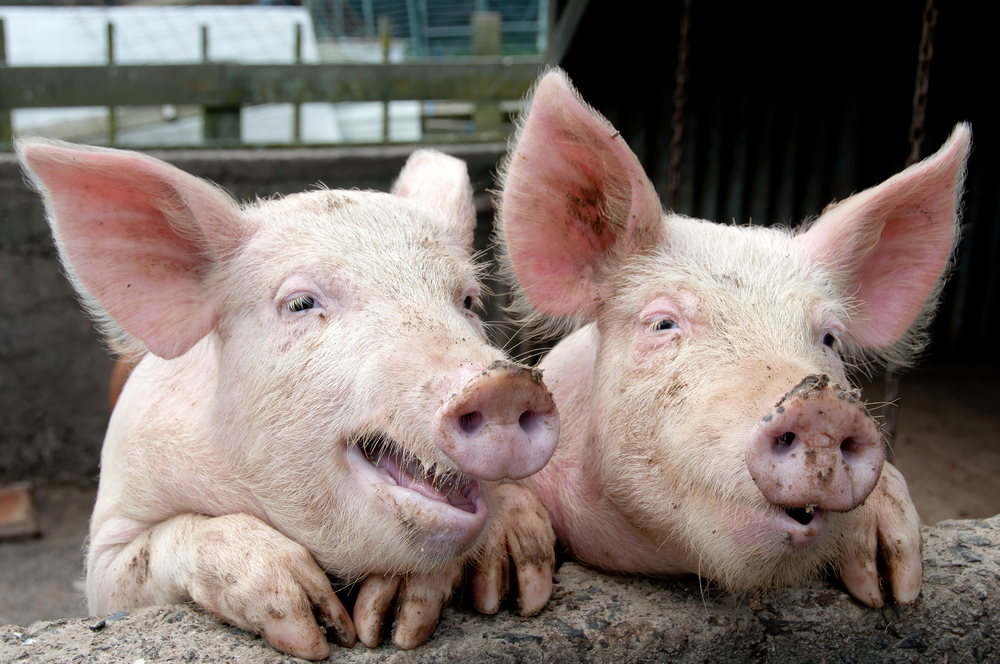“There’s a big change coming – the pig industry is going to have to drop antibiotics, so we’re looking at vaccines as being the better alternative,” said Frank Clerkin, pig and poultry vet from Cootehill, Co. Cavan.
“When it comes to bacterial challenges like Lawsonia intracellularis, the cause of ileitis, it makes sense to control it with a vaccine rather than antibiotics.
“We need to keep antibiotics for when we really need them,” Frank added.
New EU Veterinary Medicine Regulations regarding the prescription of antibiotics will come into force from January 2022. Vets will be only be able to prescribe antibiotics under strict circumstances and the type of antimicrobials to be used, the way they are to be administered and the number of animals treated will all be impacted.
The ban on the therapeutic use of zinc oxide in farmed animals, including pigs, will come into effect under European legislation by June 2022. “The farmers I work with are a pretty progressive bunch,” said Frank.
“They’ve pulled zinc oxide and antibiotics and they’re still seeing loose bowels. The most likely cause of that is Lawsonia as it’s on every pig farm in Ireland.”
Lawsonia
Lawsonia intracellularis is the bacteria known to cause ileitis, a gut infection that causes diarrhoea, and also long-term intestinal damage that impacts digestive efficiency. Even sub-clinical infection can affect performance indicators such as FCR and ADWG.
The bacteria are easily transmitted through modern pig units, even with ‘all-in-all-out’ systems, disinfection and biosecurity.
“Even if the animal gets exposed to infection and develops antibodies, there will still have been damage to the gut, which means that the pig will be missing out on feed and missing out on growth.
“You can only sell an animal once, so producers need to get the best possible weight and the best possible price. The farmers I work with are really pushing performance and want to get the best value from their feed,” explained Frank.

Vaccination reduces antibiotic use
Recently, Frank has started to prescribe an inactivated vaccine that reduces diarrhoea, loss of daily weight gain, intestinal lesions, bacterial shedding and mortality caused by Lawsonia intracellularis infection. The vaccine can be given by intramuscular injection from three weeks-of-age.
Studies in both the US and Denmark have shown that vaccination reduced the use of antibiotics and antimicrobial products to control Lawsonia infection.
“This particular vaccine is much easier to dose because it’s an injection, so you know each piglet has got it. A lot of my clients are mixing it with a combined PCV2 and Mycoplasma hyopneumoniae vaccine, so they get the added protection without needing to make changes to the vaccination schedule.
“A high welfare pig can live with Lawsonia, but it can live much better without it. When farmers start vaccinating, they see the looseness improve and they also see performance improve. They’re putting less in and getting more out. Vaccination really is the better alternative.
“OK, it doesn’t come for nothing, but then antibiotics don’t come for nothing either,” Frank concluded.
More information
Further information on controlling Lawsonia infection with vaccination is available from your veterinary practitioner or MSD Animal Health, Red Oak North, South County Business Park, Leopardstown, Dublin 18, Ireland.
MSD Animal Health can be contacted at: 012970220 or by email at: [email protected].

